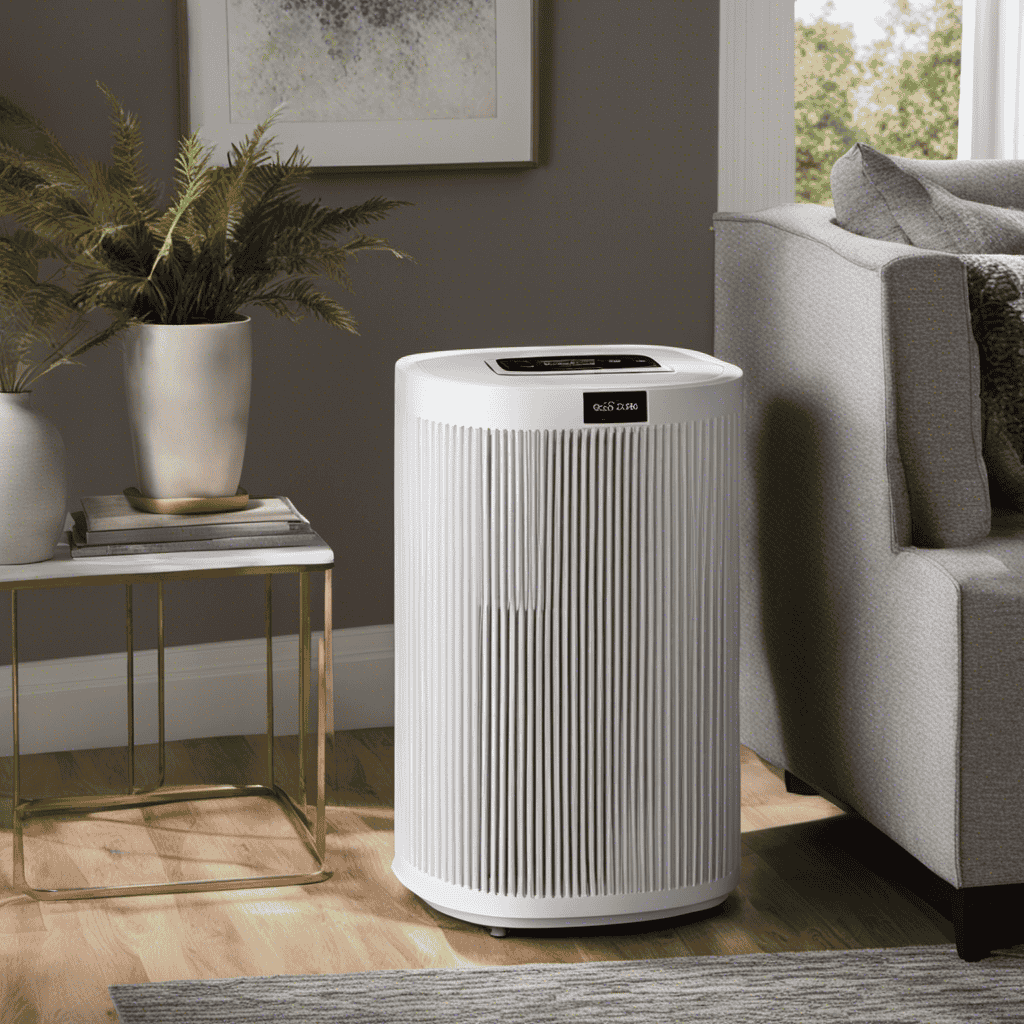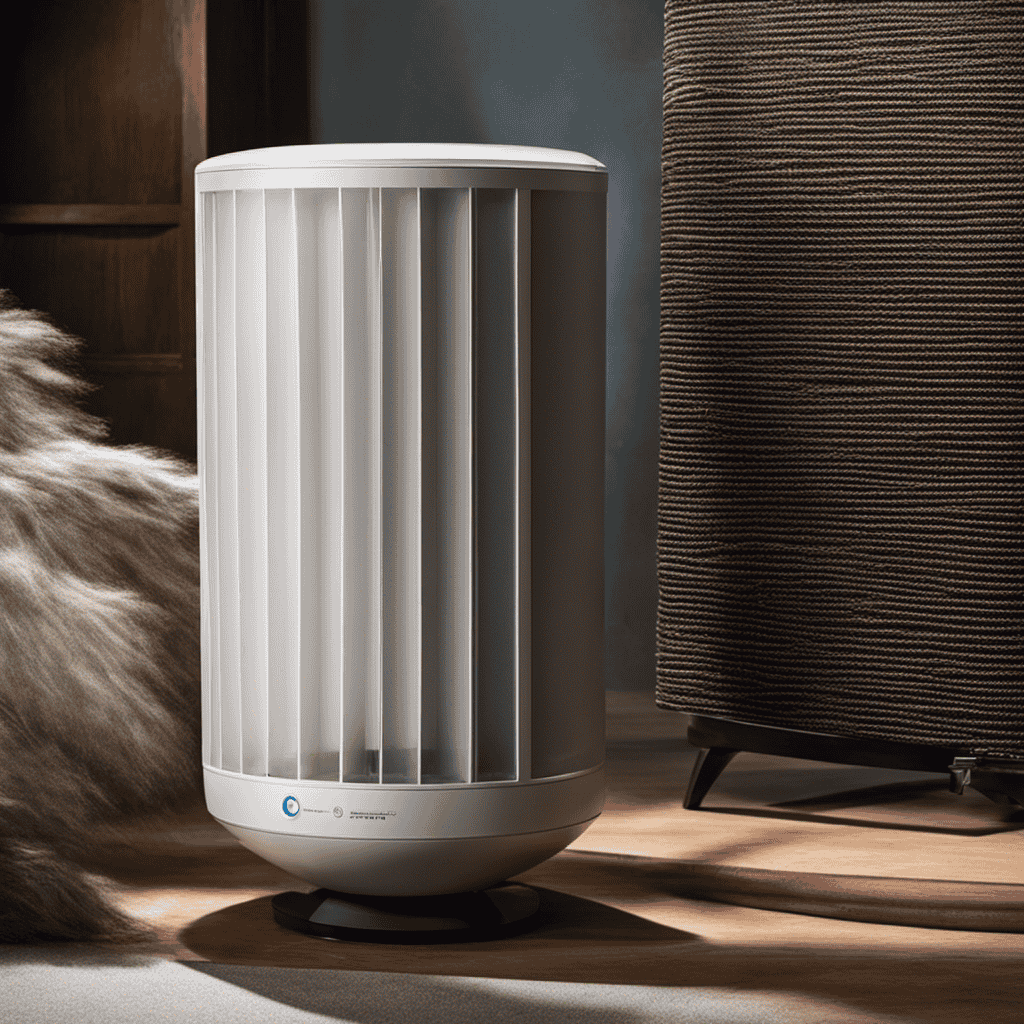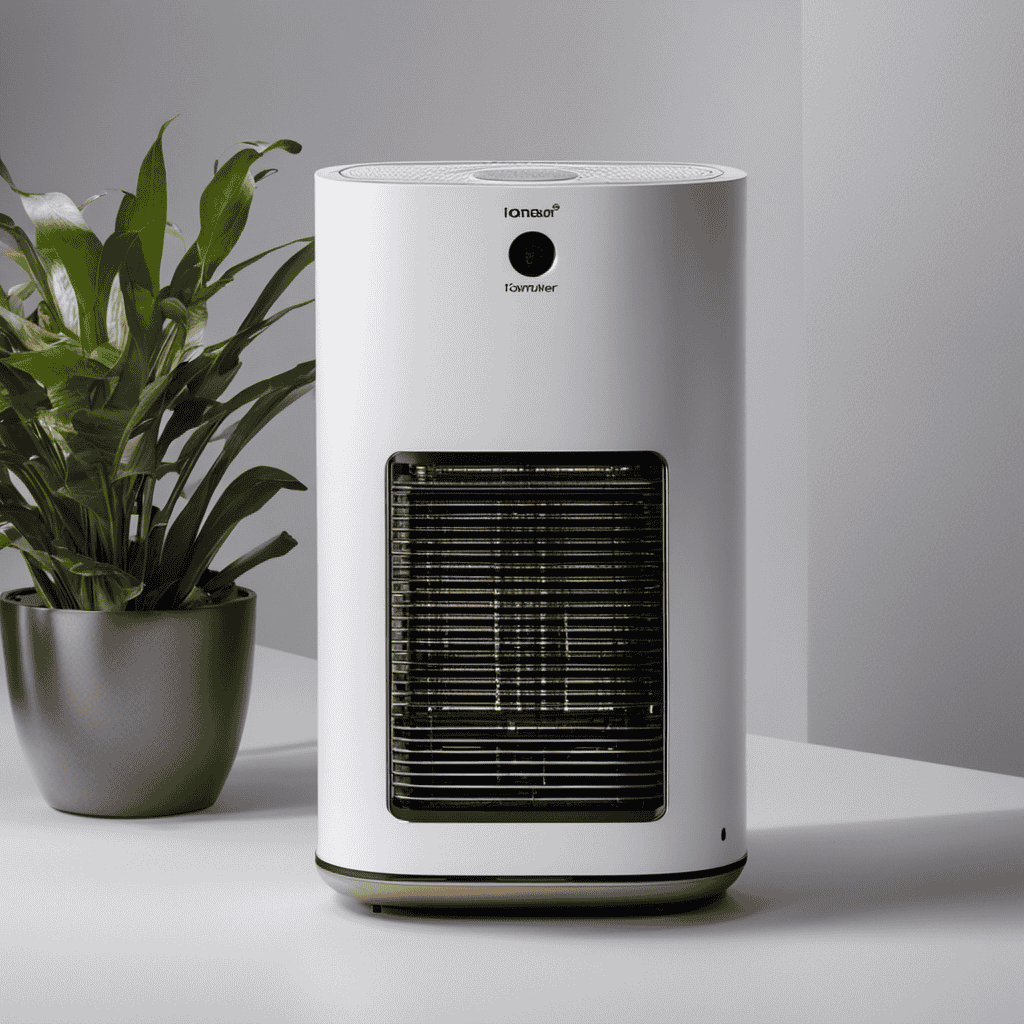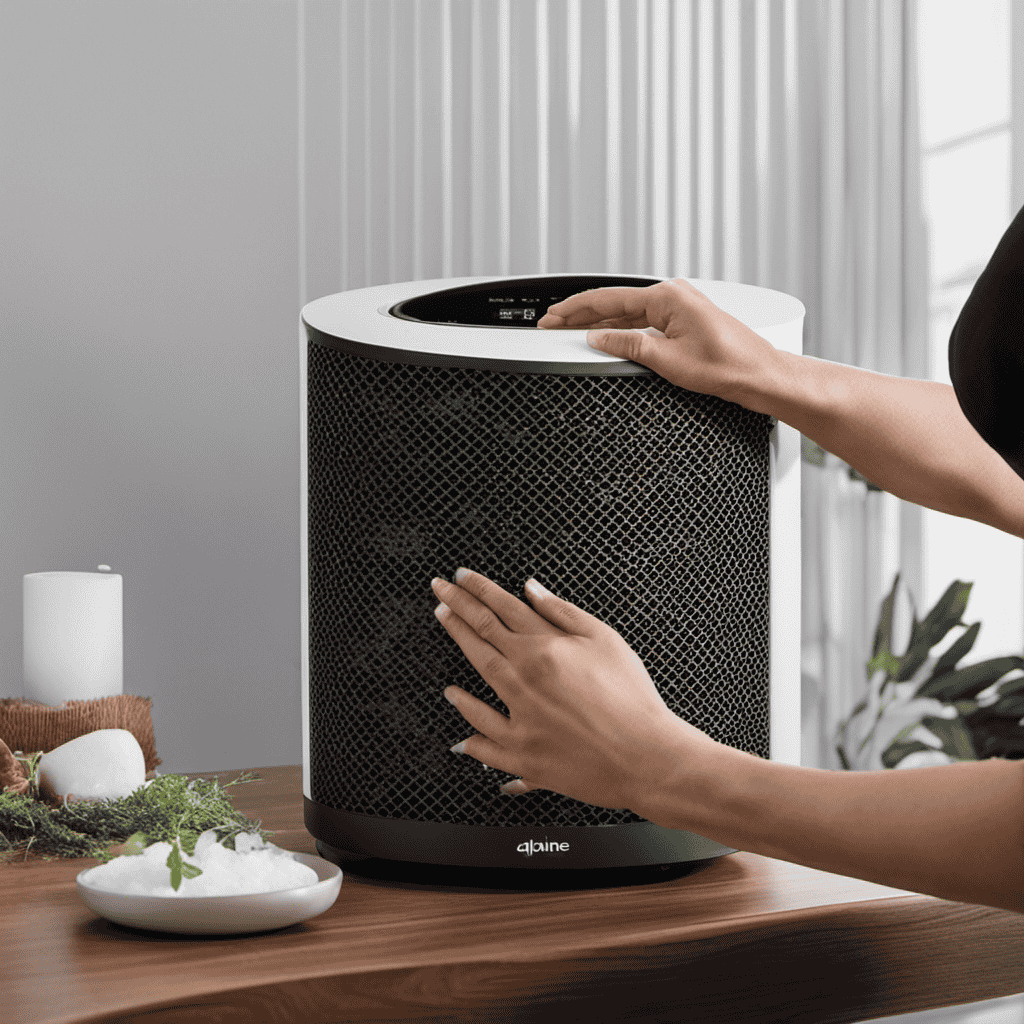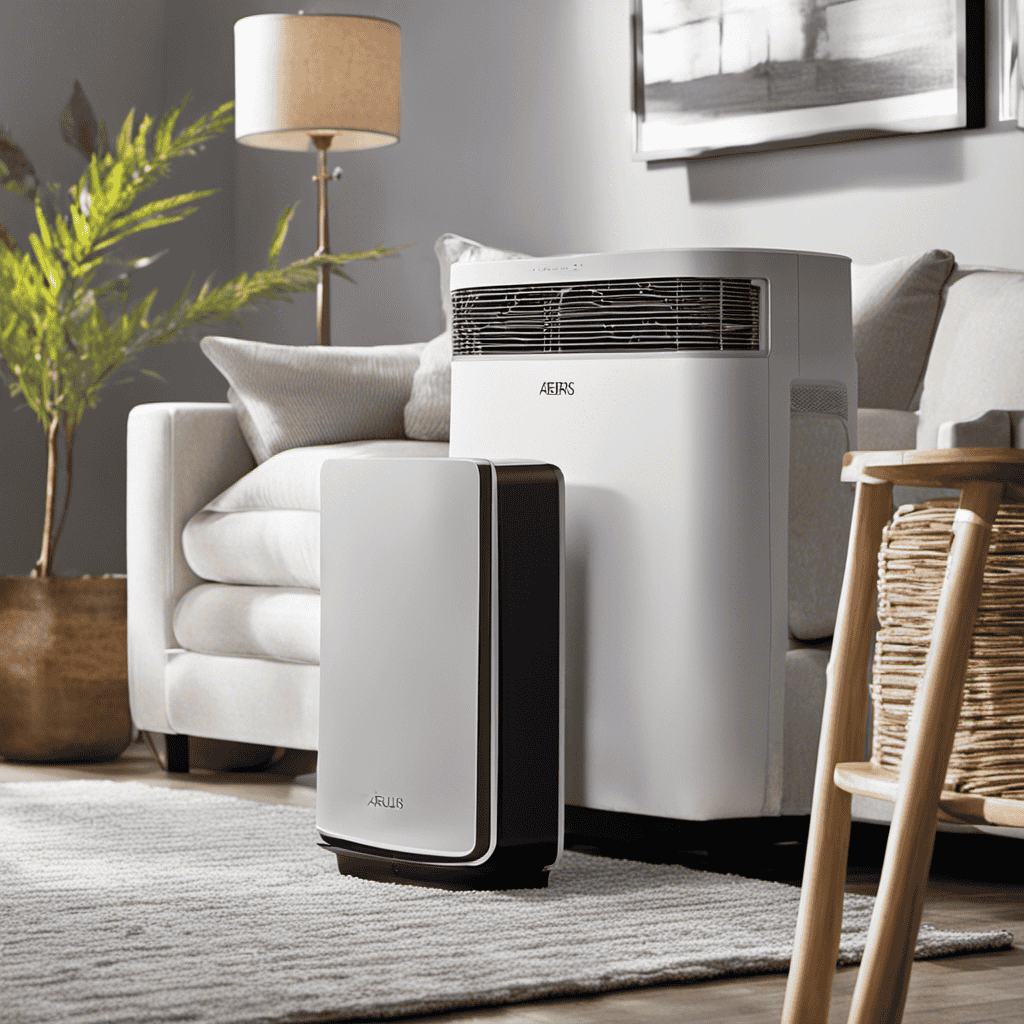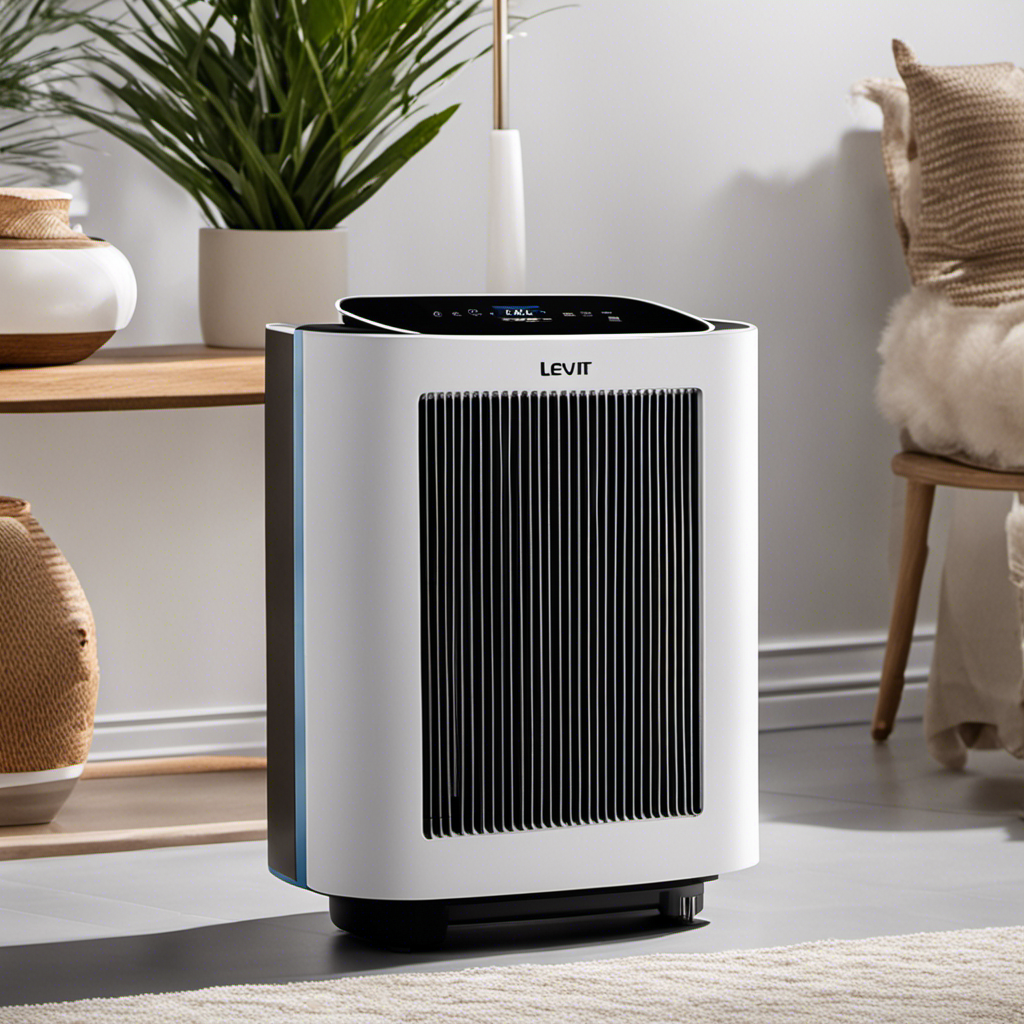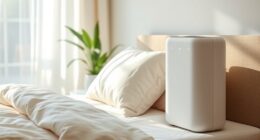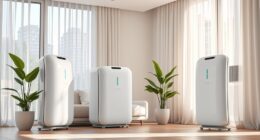I have to confess, I was previously unaware of the frequency for changing the filter in my true HEPA air purifier. However, after delving into the science, the data, and the advice from experts, I realized it’s a crucial task that should not be ignored.
In this article, I’ll break it down for you – the factors that determine filter lifespan, the recommended replacement schedule, and the telltale signs that your filter is due for a change. Plus, I’ll share some tips on how to extend the life of your filter and keep it performing at its best.
So, let’s get down to the nitty-gritty of filter maintenance for a true HEPA air purifier.
Key Takeaways
- Air quality in your environment and the level of pollutants determine how often you need to change the filter in a True HEPA air purifier.
- Following the manufacturer’s recommended filter replacement schedule is important to maintain optimal performance and prolong the lifespan of the air purifier.
- Signs that your filter needs changing include a decrease in the efficiency of the air purifier and common filter problems that affect air purification efficiency.
- Regularly cleaning and maintaining the filter can help extend its lifespan, and using reusable filters or advanced filter technologies can be considered as well.
Factors That Determine Filter Lifespan
Depending on factors such as air quality and usage, you’ll want to consider how often you need to change the filter in your true HEPA air purifier.
The efficiency of a filter can be affected by various factors. One important factor is the level of air pollution in your environment. If you live in an area with high levels of pollutants, such as dust, pollen, or pet dander, the filter will need to work harder and may need to be changed more frequently.
Another factor is the usage of the air purifier. If you run it constantly or for extended periods, the filter will accumulate more particles and require more frequent replacements.
It’s important to note that a clogged filter can reduce the effectiveness of the air purifier, so checking and replacing the filter regularly is crucial for maintaining clean and healthy air in your home.
Recommended Filter Replacement Schedule
To ensure optimal performance, it’s important to follow the recommended schedule for replacing the filters in your HEPA air purifier. Regular filter replacement is crucial for increasing filter efficiency and maintaining clean, healthy air in your surroundings.
The benefits of regular filter replacement are numerous. Firstly, it ensures that the air purifier can effectively capture and remove airborne particles such as dust, pollen, pet dander, and mold spores. Secondly, it helps to prolong the lifespan of the air purifier itself, as a clogged or dirty filter can strain the system and reduce its overall performance. Additionally, regular filter replacement helps to prevent the growth of bacteria and molds within the filter, which can contaminate the air and potentially cause health issues.
By adhering to the recommended filter replacement schedule, you can enjoy improved air quality and peace of mind knowing that your HEPA air purifier is operating at its best.
Now, let’s explore the signs that indicate your filter needs changing.
Signs That Your Filter Needs Changing
If you notice a decrease in the efficiency of your device, it may be a sign that your filters need replacing. Common filter problems can lead to a decline in air purification efficiency. One of the main factors that impact the efficiency of an air purifier is the quality of its filters. To understand the impact of filter quality on air purification efficiency, let’s take a look at the table below:
| Filter Type | Lifespan (Months) |
|---|---|
| True HEPA | 12 |
| Activated Carbon | 6 |
| Pre-filter | 3 |
| Ionizer | No need |
| UV-C | No need |
As seen in the table, true HEPA filters have a lifespan of 12 months, while activated carbon filters need to be replaced every 6 months. Pre-filters require replacement every 3 months. It’s important to follow these guidelines to ensure optimal air purification efficiency.
Extending the Life of Your Filter
By regularly cleaning and maintaining your filters, you can ensure that they last longer and continue to provide efficient purification.
Effective cleaning methods include gently vacuuming the filters to remove dust and debris, or using a soft brush to dislodge any trapped particles. It’s important to follow the manufacturer’s instructions for cleaning, as some filters may require rinsing or washing with water.
Additionally, using compressed air can help remove stubborn dirt from the filters.
Another way to extend the life of your filter is to consider alternative filter options. For example, some air purifiers offer reusable filters that can be cleaned and reused, reducing the need for frequent replacements.
It’s also worth exploring advanced filter technologies, such as activated carbon filters, which can effectively remove odors and harmful gases in addition to particulate matter.
Best Practices for Filter Maintenance
Regularly cleaning and maintaining your filters is essential for optimal performance and longevity. To ensure your filters are functioning at their best, it’s important to follow proper filter cleaning techniques.
Start by switching off your air purifier and removing the filter. Gently vacuum the filter to remove any loose debris and dust. Next, rinse the filter in warm water and mild detergent to remove any trapped particles. Allow the filter to air dry completely before reinstalling it.
Additionally, DIY filter replacement tips can be helpful to extend the life of your filter. Consider using a filter with a higher MERV rating, as it can capture more airborne particles. It’s also recommended to change your filter every 6-12 months, depending on the manufacturer’s instructions and the air quality in your surroundings.
Frequently Asked Questions
Can I Clean and Reuse a True HEPA Filter Instead of Replacing It?
I can clean and reuse a true HEPA filter instead of replacing it. The cleaning process involves removing accumulated dust and debris. However, it is recommended to replace the filter periodically to ensure optimal air purification and the benefits of using a true HEPA filter.
How Much Does a Replacement Filter for a True HEPA Air Purifier Typically Cost?
I change the filter in my True HEPA air purifier every 6 to 12 months, depending on the usage and air quality. The cost of a replacement filter typically ranges from $20 to $50.
Are There Any Health Risks Associated With Using a True HEPA Filter Beyond Its Recommended Lifespan?
There are no health risks associated with using a True HEPA filter beyond its recommended lifespan. However, to maximize its health benefits, it’s important to follow proper maintenance tips and change the filter regularly.
Is It Necessary to Change the Pre-Filter in Addition to the True HEPA Filter?
It is necessary to change the pre-filter in addition to the true HEPA filter. Regular pre-filter maintenance ensures optimal performance and extends the lifespan of the HEPA filter. It also provides added benefits of capturing larger particles and prolonging the overall filter life.
Can I Use a Generic Filter Instead of the Brand-Specific Filter Recommended for My True HEPA Air Purifier?
Can I use a generic filter instead of the brand-specific one for my True HEPA air purifier? It’s crucial to use the recommended filter to ensure optimal performance and efficiency. Regular filter maintenance is necessary for clean and purified air.
Conclusion
In conclusion, it’s crucial to regularly replace the filter in a True HEPA air purifier to ensure optimal performance. Factors such as air quality, usage, and the type of pollutants present can impact the lifespan of the filter.
Based on industry recommendations, filter replacement should occur every 6-12 months. Signs that indicate the need for a filter change include reduced airflow, increased noise, and unpleasant odors.
By following proper maintenance practices and keeping an eye on filter lifespan, you can enjoy cleaner, healthier air for years to come.
